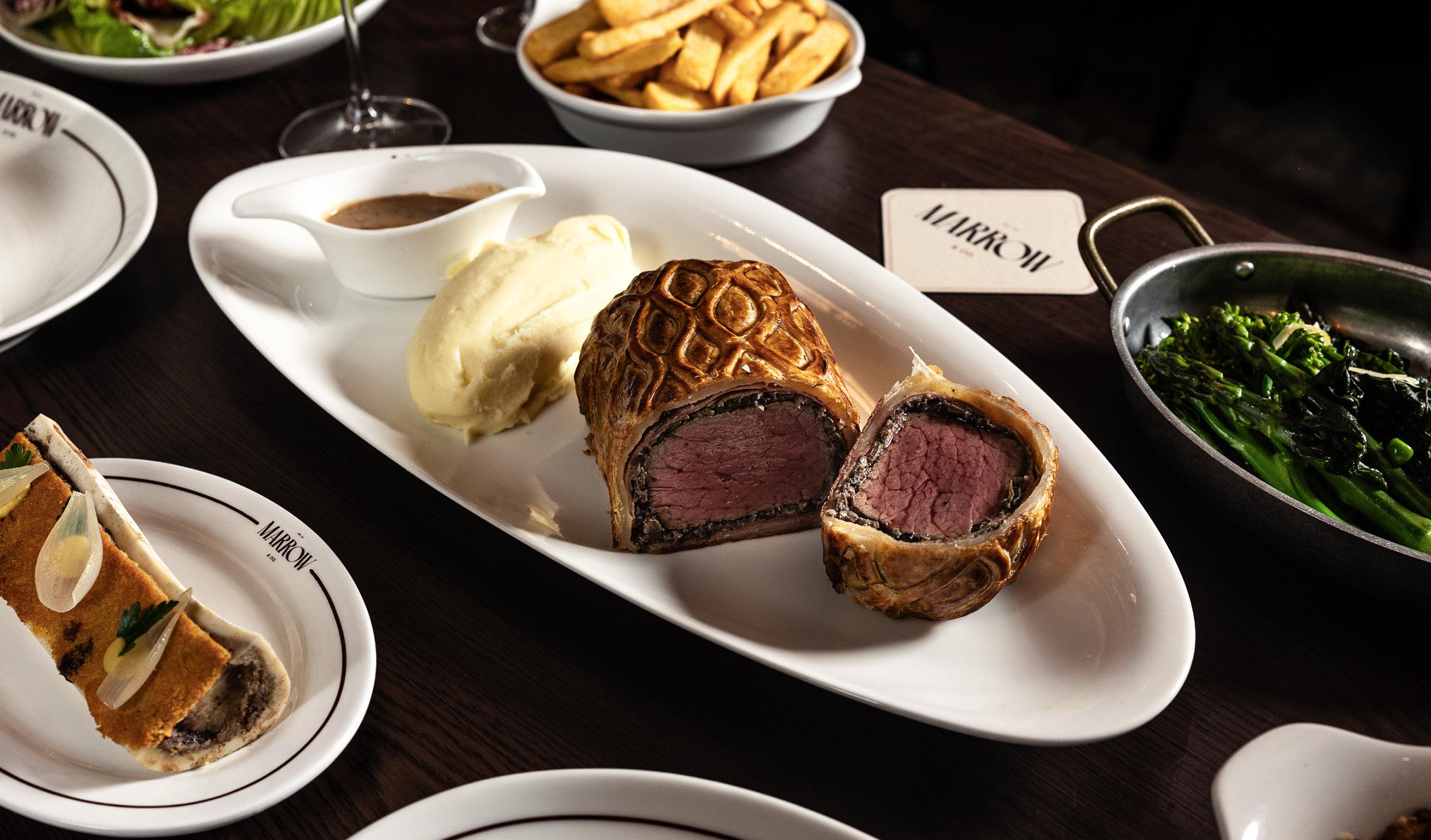
8 minute read
FEATURE: DINING BEYOND THE BISTRO
Hungry for more
From Mediterranean feasts to upmarket steakhouses, clubs are mixing up their food offering to meet evolving tastes and expectations.
CLUB BISTROS HAVE long been the go-to for patrons’ favourite classics, but today’s diners are hungry for variety. Recognising this shift in demand, Culburra Beach Bowling and Recreation Club – located in a popular tourist town on the NSW south coast – decided to act. The club opened a fourth food venue, Baba’s, serving Mediterranean and Middle Easterninspired dishes such as chargrilled souvlaki, and platters featuring beef, chicken, lamb, and prawn skewers, pita bread, pomegranate tabouli salad, fries, falafel, dips, fried haloumi, and Turkish meatballs.
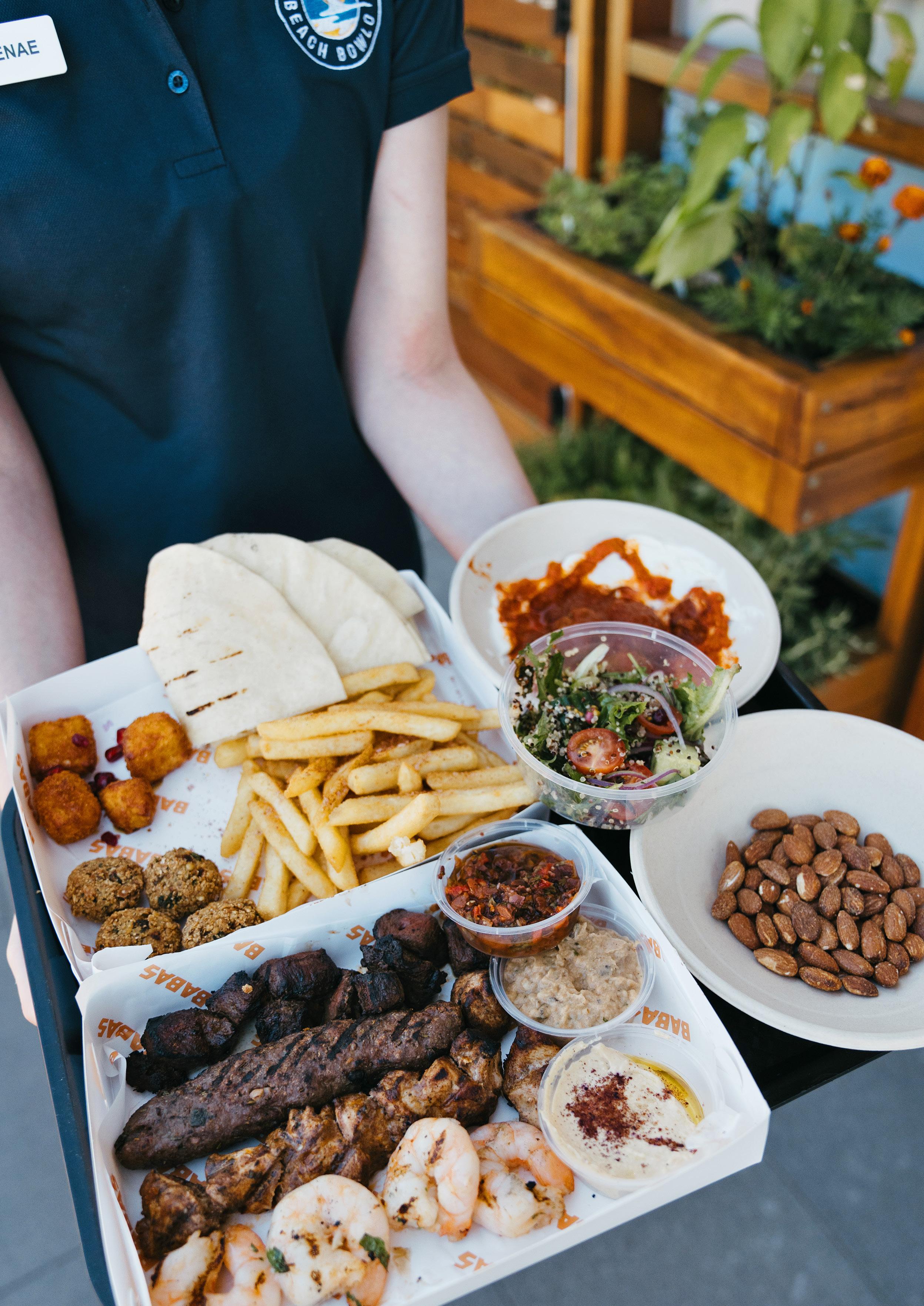
“We have a pizzeria called Prince Eddies and a bistro called Lemon Tree. Those areas can accommodate the number of customers we get,” said Culburra Beach Bowling and Recreation Club chief executive Luke Richards.
“But we noticed that over busy periods like Christmas and long weekends, we were getting people coming from all different areas to the club, so we looked at creating another food option.”
Food is just as important as entertainment to get people into the club.
Luke Richards, Culburra Beach Bowling and Recreation Club CEO
Knowing the club wanted to offer something completely different from what was already available in the area – which included breweries, barbeque, and dumplings – the team turned to Jimmy’s Falafel, run by Sydney hospitality giant Merivale, for inspiration.
“We had an employee who worked at Merivale, so we were familiar with it. We visited, liked what they were doing, and used it as inspiration. Ours is on a much smaller scale, though,” Richards explained.
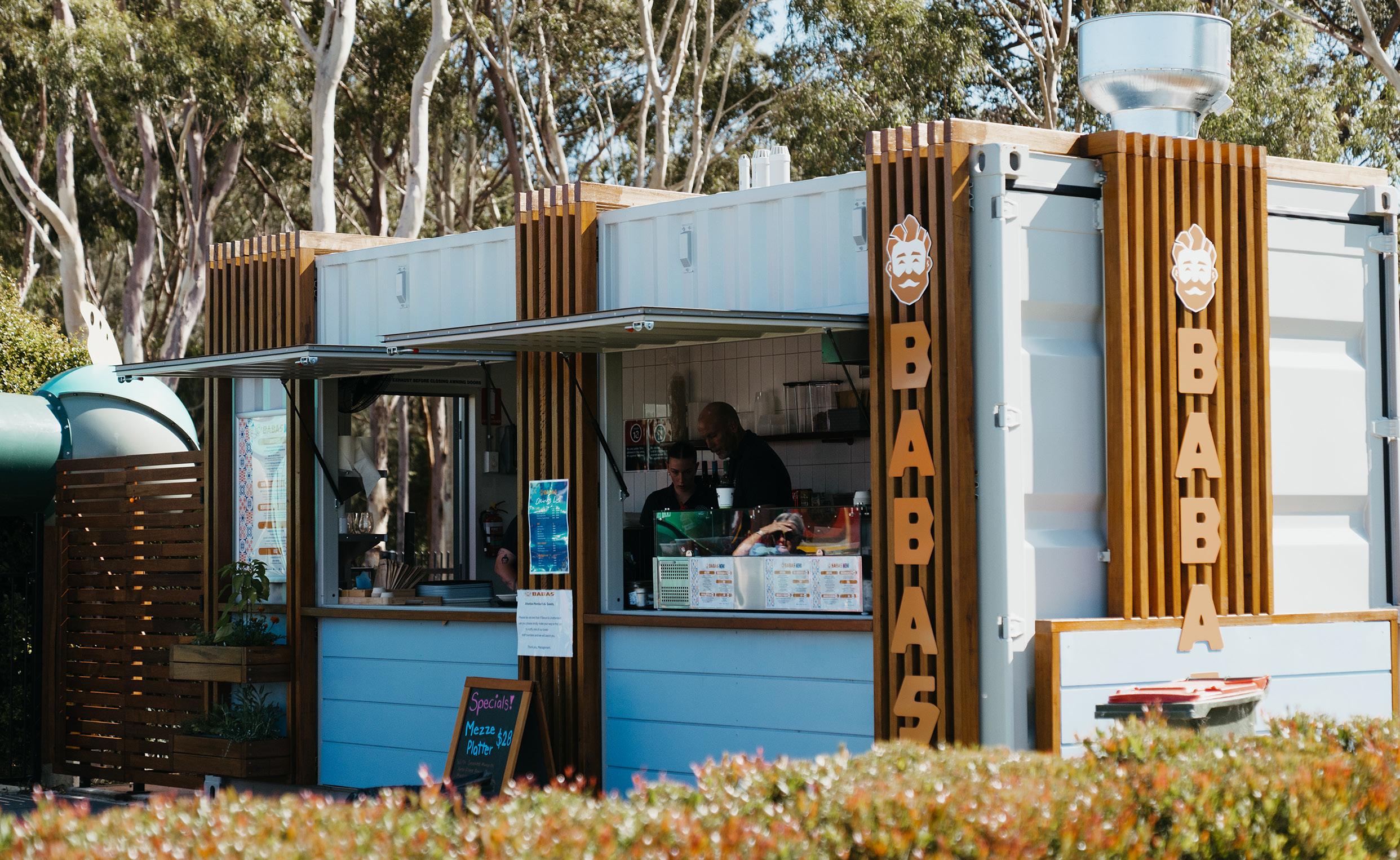
“We were looking for something Middle Eastern with a Mediterranean feel that we could open and shut on weekends for most of the year. It would bring in a new market and support our other food areas.”
For Richards, serving up Mediterranean food was an easy choice.
“This type of cuisine works well in both summer and winter, appeals to all generations, and is efficient to cook. So, we decided to go with it.”
Unlike the club’s other food venues, Baba’s operates out of a renovated shipping container and in the club’s outdoor space that can seat up to 400 people.
“The container was a good option for us in case it didn’t work, or if we decided to do something different,” Richards said.
“We can move it to another part of the venue if needed. Since it’s just on a concrete slab, we have the flexibility to relocate it – like moving it to [our local garden] and turning it into a cafe instead.”
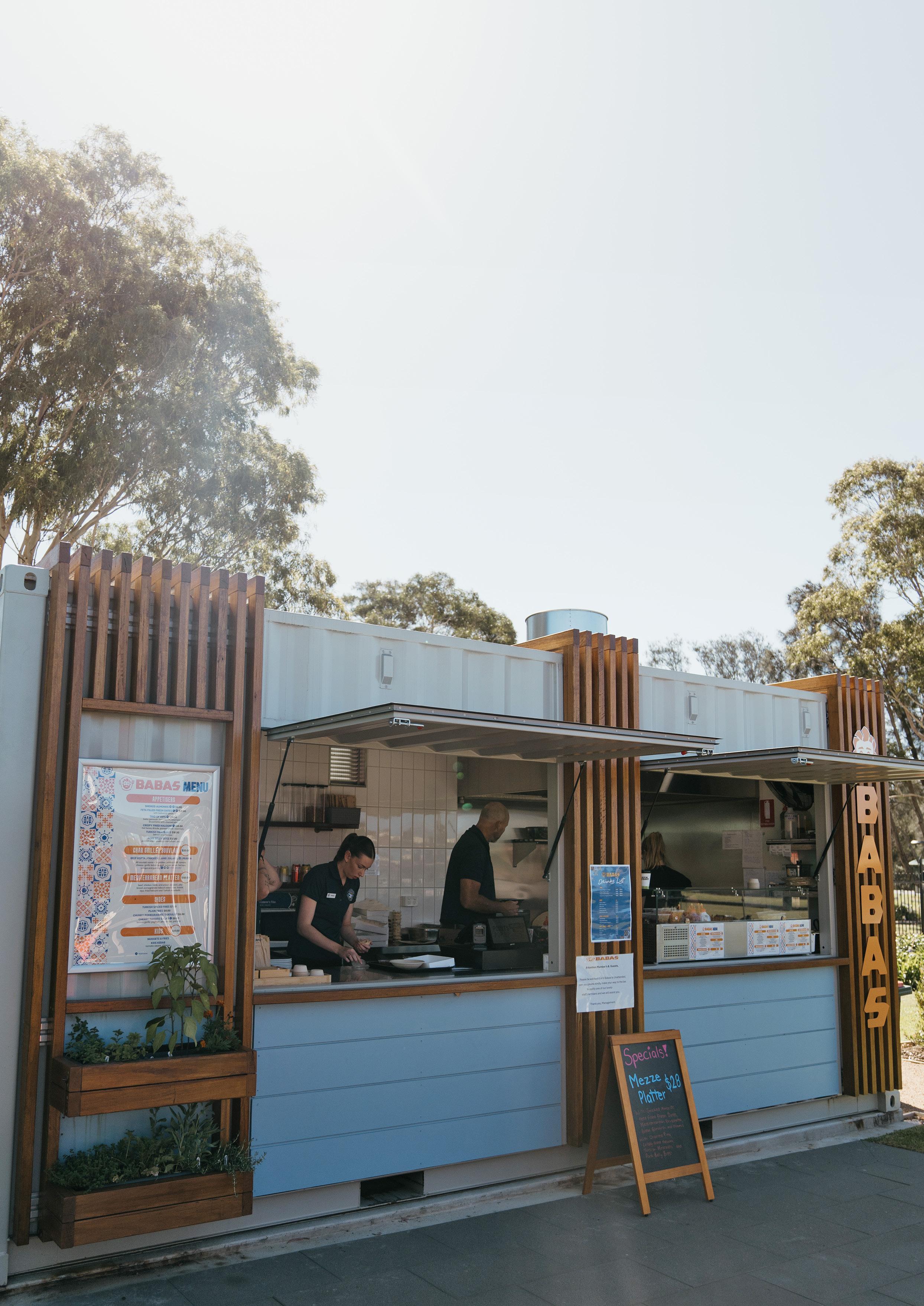
Richards explained the addition of Baba’s fits in with the club’s broader strategy to prioritise its food offerings.
“A lot of clubs talk about diversification, but unfortunately, many are self-reliant on gaming, which is fine, but that’s their market. We’re a food and beverage venue that also has gaming, and that’s how we see ourselves,” he said.
“We’ve worked really hard over the last 18 months to make food and beverage profitable for us, and we think it is. That’s our diversification model, along with The Harvest [garden] and other projects we’re working on.
“Our area has a large tourism draw, and people want to eat a variety of food. Our job is to create different options for people in the area, so they don’t need to jump in the car to drive to Nowra or Huskisson. That’s our goal, and hopefully, we’re achieving it.
“Food is just as important as entertainment to get people into the club. The market has changed a lot. In the past, it was all about beverage and gaming, but now we’re catching up to the pub groups and realising there’s money to be made in food. It’s important to have your own food offering if you can and run it well.”
Sizzling success on wheels
It’s a similar story for Harmonie German Club in Canberra. After recognising the changing landscape and wanting to expand its community reach and diversification, the club launched a mobile food trailer in February 2024 with support from the ACT government’s Diversification and Sustainability Grant created to help clubs diversify their income and sustain their business.
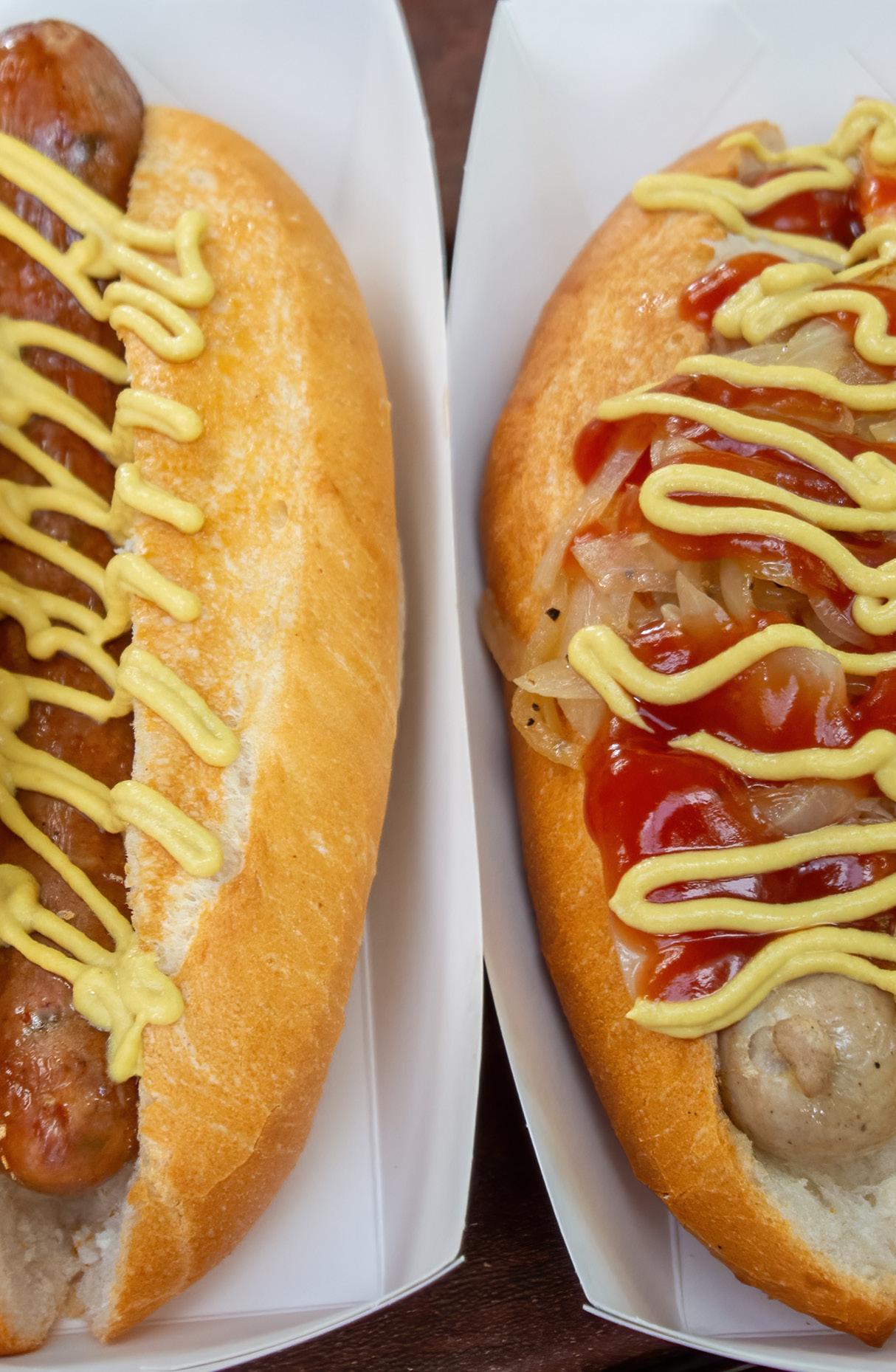
The trailer’s specialty is German street food. Initially, it offered only sausages on a roll and freshly baked pretzels, but it has since expanded to include currywurst, leberkäse, bratwurst, and kranskys.
Since its launch, the food trailer has participated in several high-profile events, including the COTA Seniors Week Expo, the Speedway Race Day at Wakefield Park, the UC Night Markets, the Hops and Hooves Festival at Thoroughbred Park, and the German Auto Day. This year, it has also secured attendance at the 2025 Enlighten Festival.
“We are under pressure to diversify our income stream. We only have 26 poker machines, so we’re not a big gaming venue. We generate enough, but we’re not bringing in millions each year, so we’re trying to diversify within our means,” said Paul Berger, CEO of Harmonie German Club.
“For small clubs, even something as simple as a late-night burger stand in the car park can attract new patrons. The food trailer is helping us reach people we were previously missing.”
Berger considers the club fortunate to be able to offer a unique food experience, and advises other clubs that can, to do the same.
It’s about finding your point of difference. For us, it’s Bavarian-style food, and it’s been a real game changer.
Paul Berger, Harmonie German Club CEO
“We’re lucky to have a unique offering that isn’t available every day. If we were just an RSL running a bistro, it might not have the same impact,” he acknowledged.
“It’s about finding your point of difference … for us, it’s Bavarian-style food, and it’s been a real game changer.”
The exposure the club has had through the food trailer has also been significant.
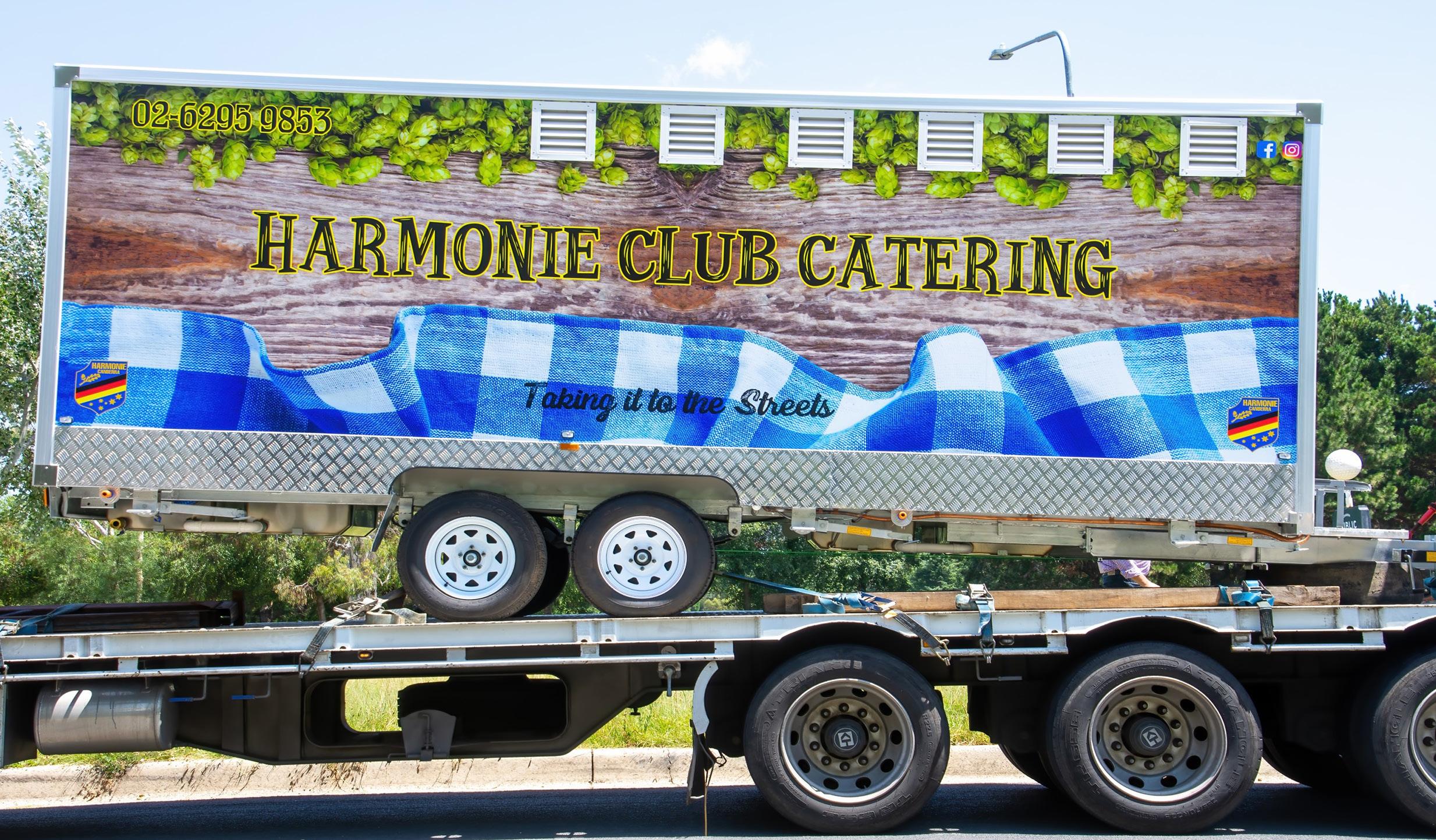
“The food truck has given us reach beyond the club,” Berger said.
“It’s great advertising, and people love a good German sausage – it’s been a great conversation starter, and we’ve been inundated with catering requests. Towards the end of last year, it became a fulltime gig, we had to knock back requests because we were really busy at the club too.”
A cut above
Meanwhile, Bankstown Sports Club has responded to evolving dining preferences with the launch of Marrow & Co, a sophisticated steakhouse located next door to the club’s Greenfield Station Bistro.
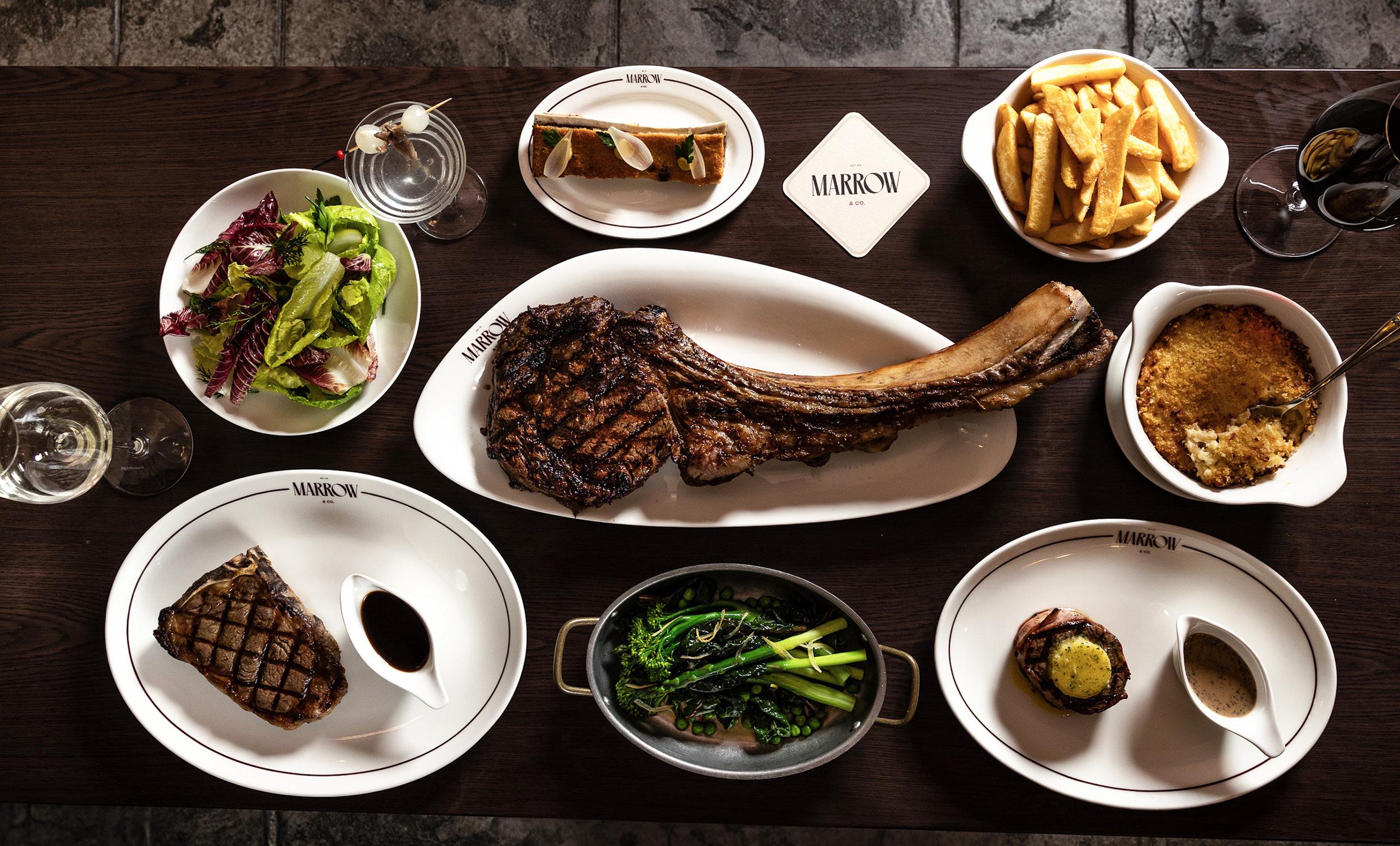
“The carriages near the club bistro have been a hallmark for years, with various venues operating in them. This space holds special significance for the CEO and board of directors, so it’s exciting to bring it to life again,” said club executive chef Evan Burgess.
Unlike the steak served at the bistro, Marrow & Co shines a spotlight on premium Australian beef, offering over 13 handpicked cuts, from grass-fed to Wagyu, bone-in to bone-out.
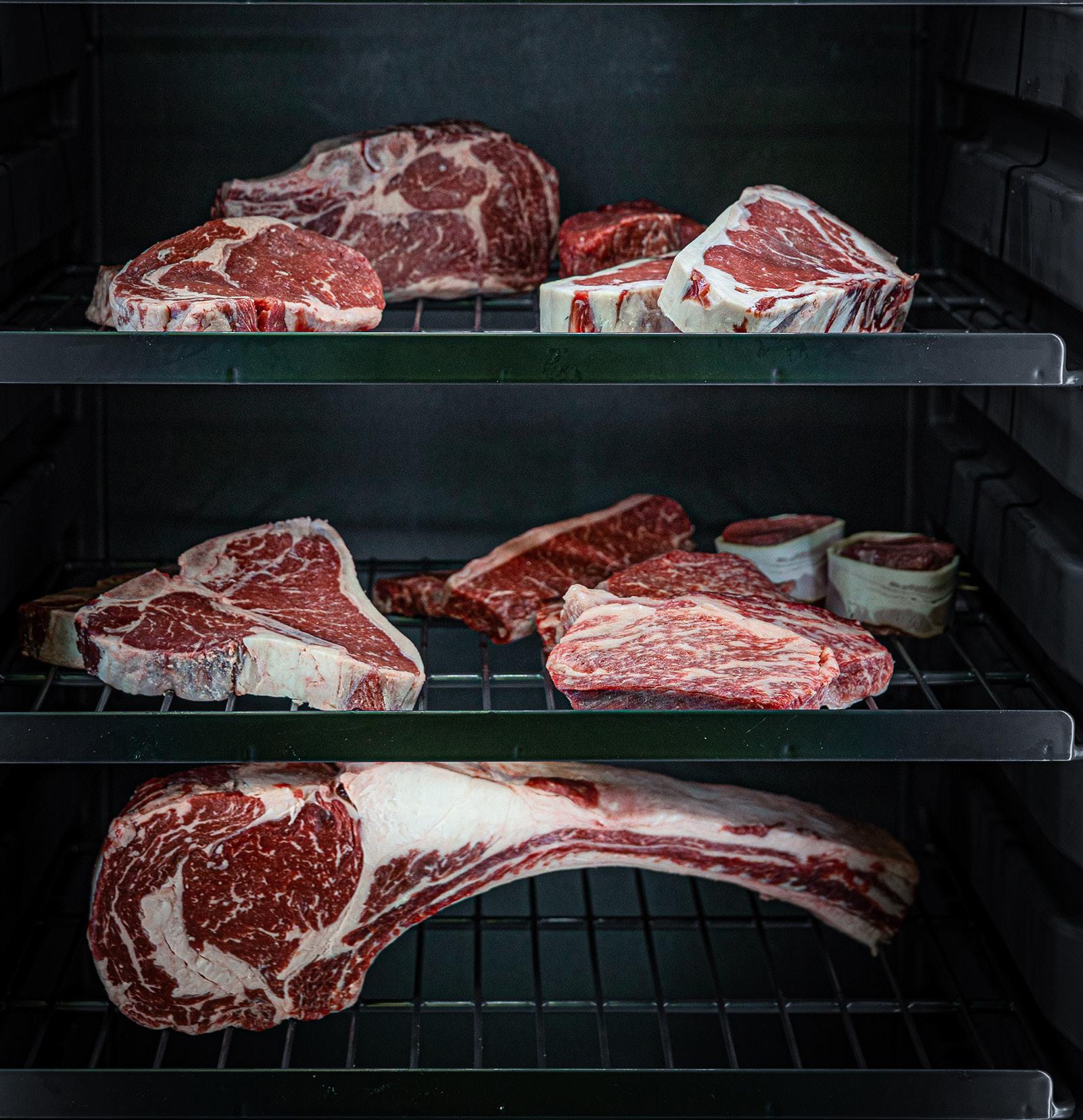
“This is a slightly upmarket, polished but approachable steakhouse that showcases Australian beef. The price point is accessible, with steaks starting at $41 and going up to $96. We wanted to offer something for all budgets, with the hero being our tomahawk steak, dry-aged in our display cabinets.”
“We didn’t have a dedicated upmarket steakhouse before, and it’s something our members have been asking for, and we listened.”
Burgess believes diners increasingly value quality ingredients.
“Quality has been improving everywhere in clubs. At our core, we’re here for our members, offering affordable dining that’s also a destination for local families,” he said.

According to Burgess, the vision behind Marrow & Co was to create a dining experience on par with some of the city’s best restaurants, while remaining true to the club’s local clientele and ensuring the menu caters to their needs, including offering a fully halal menu.
“We didn’t want to create a fine-dining, stuffy restaurant,” Burgess explained.
“The service at Marrow is polished, and guests are well looked after, but it’s approachable and welcoming.”





